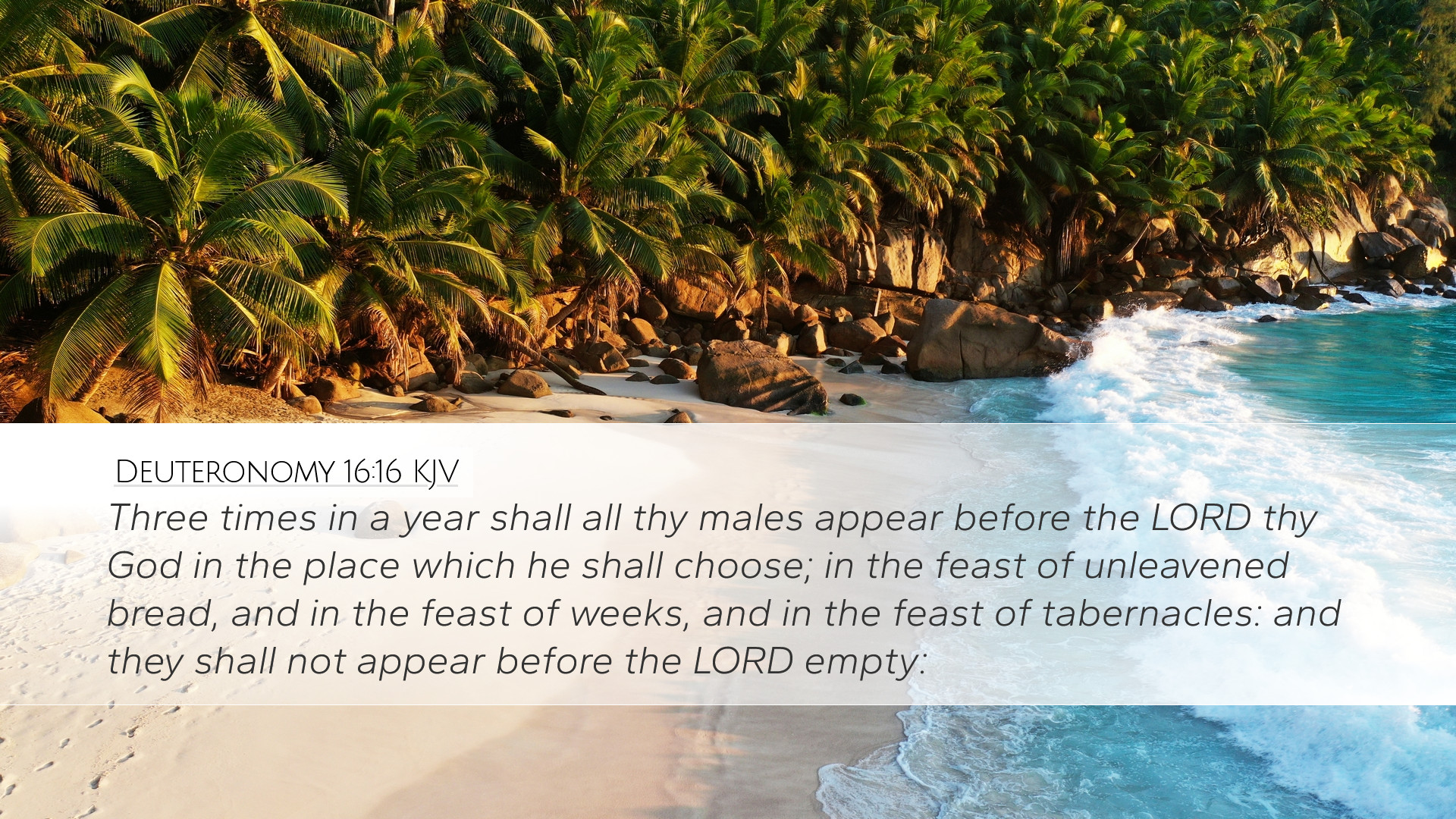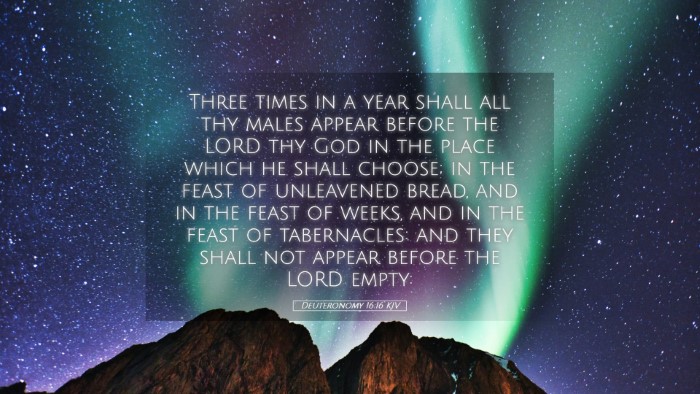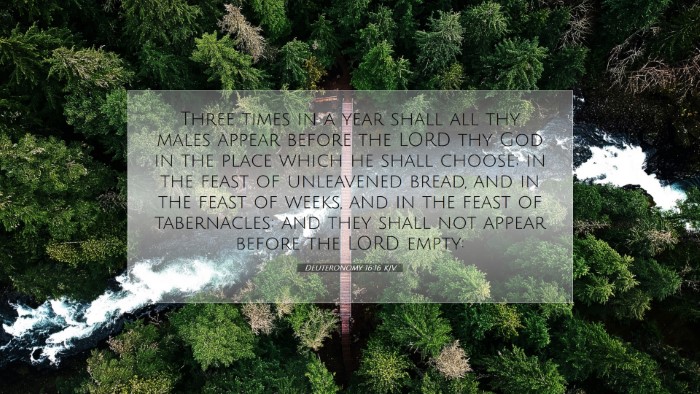Commentary on Deuteronomy 16:16
Verse Reference: Deuteronomy 16:16 - "Three times a year all your males must appear before the Lord your God in the place He chooses: at the Feast of Unleavened Bread, the Feast of Weeks, and the Feast of Tabernacles. No one should appear before the Lord empty-handed."
Introduction
The command in Deuteronomy 16:16 presents a key aspect of the Israelite worship system as established by God. This verse encapsulates important theological themes, including the significance of communal worship, the necessity of bringing offerings, and a reminder of God's provision and sovereignty over His people. Commentators throughout history provide rich insights into these themes that are valuable for pastors, students, theologians, and Bible scholars.
The Call to Assemble
Deuteronomy 16:16 begins with a directive that all males of Israel are to appear before the Lord three times a year. This call to assemble is significant for several reasons:
- Community and Unity: The gathering emphasizes the unity of the nation of Israel. As Matthew Henry notes, such assemblies foster a collective identity and encourage communal worship.
- Divine Appointment: It is important to recognize that these feasts were divinely appointed times. Albert Barnes points out that these festivals serve as reminders of God’s past faithfulness and provide opportunities for renewed commitment.
- Spiritual Discipline: Adam Clarke remarks that these appointed times underscore the discipline required of the Israelites in setting aside time for worship amidst their agricultural and familial duties.
The Feasts Represented
The verse specifies three key feasts, each with its own unique significance:
- The Feast of Unleavened Bread: This feast commemorates the Exodus, signifying liberation from Egypt. It is also a time of reflection on purity and the removal of sin, as leaven often symbolizes corruption.
- The Feast of Weeks (Shavuot): Celebrated 50 days after Passover, this feast marks the giving of the Law at Sinai and the beginning of the wheat harvest. It represents both a historical and agricultural blessing, reminding the Israelites to acknowledge God’s provision.
- The Feast of Tabernacles: This feast, also known as Sukkot, commemorates the Israelites’ wanderings in the wilderness and God’s provision during that time. It calls to mind themes of dependence and gratitude for God's sustenance.
Spiritual Implications
This divine command to appear before the Lord three times a year carries profound spiritual implications:
- Encounter with God: The act of coming before God is more than mere obedience; it reflects a deep desire to encounter the divine. As emphasized by Clarke, such personal encounters renew the covenant relationship between God and His people.
- Corporate Worship: Corporate worship cannot be understated. Matthew Henry asserts that corporate gatherings reinforce communal faith and encourage accountability among believers.
- Generosity and Giving: The directive not to appear empty-handed aligns with the biblical principle of offering thanksgiving and generosity. Barnes notes that offerings reflect one’s heart posture and acknowledgment of God's blessings.
Theological Perspectives
Several theological themes arise from this verse that are critical for understanding both the Old Testament context and contemporary relevance:
- Covenant Relationship: The requirement to appear before God indicates an ongoing covenant relationship between Israel and the Almighty. It highlights God's desire for His people to maintain communion with Him.
- Holiness and Reverence: The act of coming to the holy place signals the need for reverence and preparation. A heart that approaches God empty is a heart unprepared for worship, as noted by Clarke.
- Forgiveness and Redemption: Each feast encapsulates themes of redemption. They teach the Israelites to remember God’s saving acts and their need for ongoing repentance and reliance on Him.
Conclusion
Deuteronomy 16:16 serves as a profound reminder of the significance of worship, community, and the recognition of God's sovereign provision. The insights provided by public domain commentators enrich our understanding of this text and challenge contemporary believers to reflect on their worship practices. As we consider our gatherings today, let us remember the careful attention given to divine appointments in the life of faith, encouraging us to come before God with hearts full of gratitude and offerings that reflect our love and devotion.


